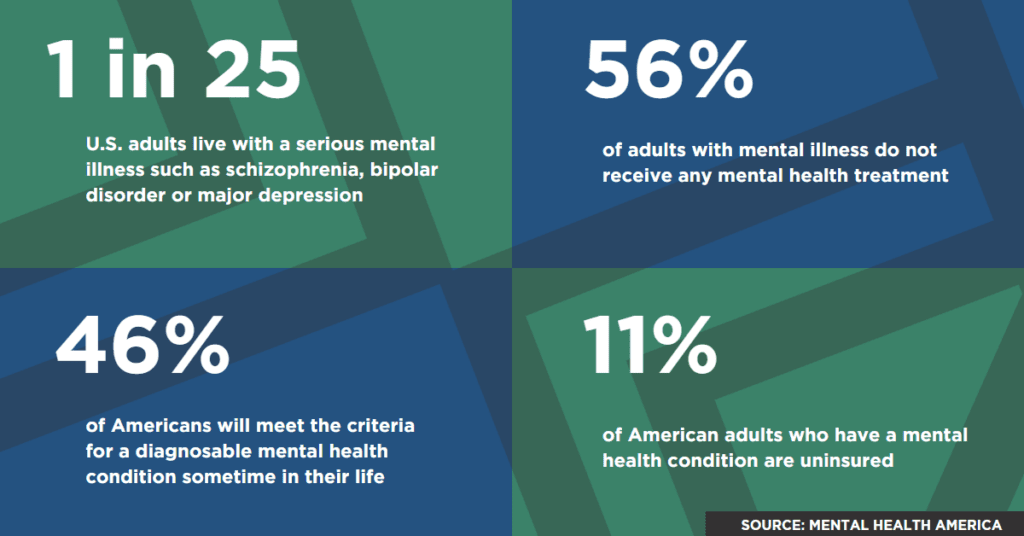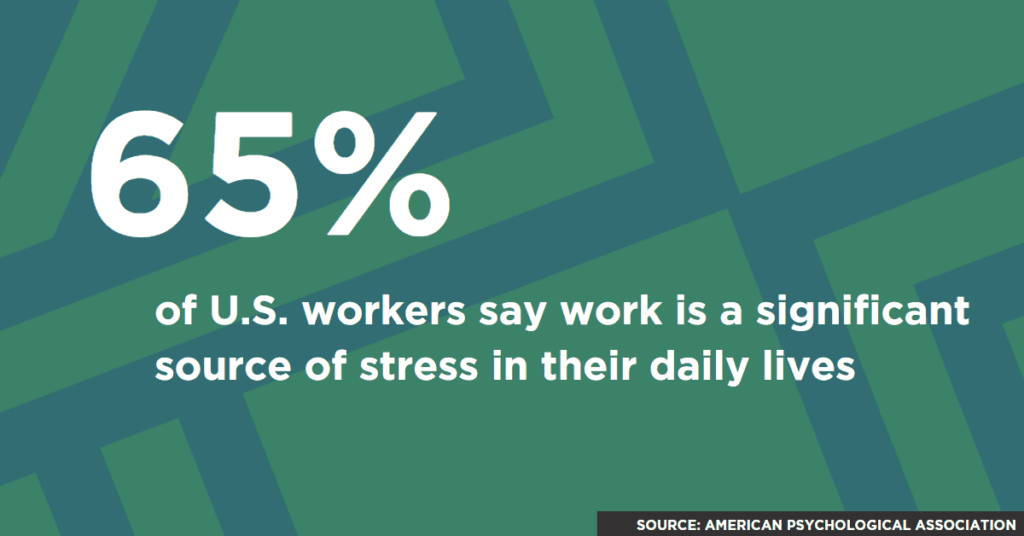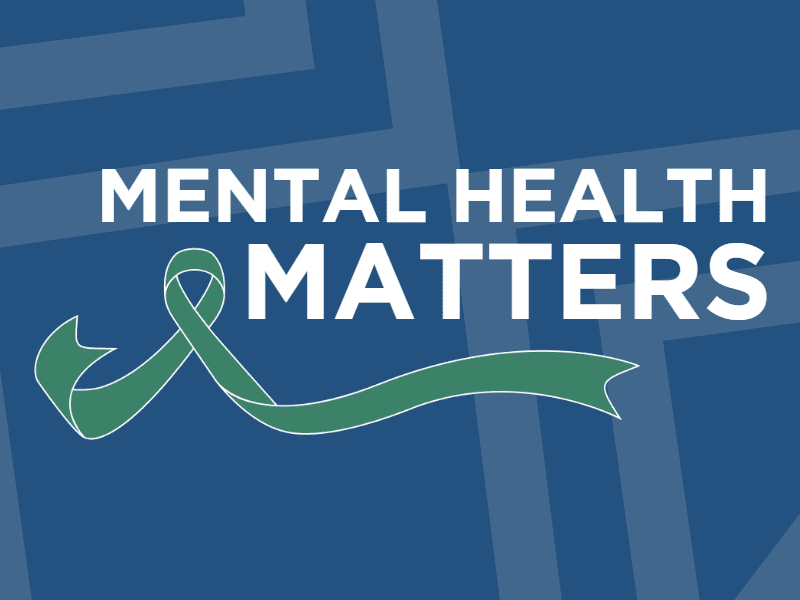Almost 20% of Americans suffer from some form of mental illness, according to Mental Health America, but the issue isn’t acknowledged as often as it should be.
Experts say nearly all of us experience the ‘common cold’ of mental illness, but unlike physical ailments, mental health problems often go untreated or ignored, largely due to stigma associated with mental illness.
Ronald C. Kessler, PhD, world-renowned expert in surveying global mental health and the McNeil Family Professor of Health Care Policy at Harvard Medical School says “No one would be shocked if we learned that 99% of people had a physical illness during their life. Whether it’s a cold or cancer; likewise, we’ve all had the common cold form of mental illness at some point.”
WHAT IS MENTAL HEALTH?
Mental health is the umbrella term that encompasses emotional, psychological, and social well-being. Our mental health has a direct impact on how we think, feel, and act, along with determining how we handle stress, relate to others and make decisions.
>> LEARN MORE ABOUT COMMON MENTAL ILLNESSES
According to Mental Health America, nearly half of Americans will meet the criteria to be diagnosed with a mental health condition at some point in their lives, but mental illness looks different for everyone. Just like physical ailments, mental health issues can have a wide range of symptoms, duration and severity.


RECOGNITION AND ACTION
Mental health is important, but mental health issues can be tricky to recognize and treat. Not only do symptoms manifest differently for everyone, but they’re often “invisible” to everyone but the patient themselves.
Being aware of common symptoms of mental illness can go a long way in helping identify mental illness before it gets out of control – either in yourself or in someone you care about. Behaviors to watch for include shifts in mood, sadness, anxiety, irritability, low energy, delusions, hallucinations, or sleep problems.
TREATING MENTAL ILLNESS
According to Substance Abuse and Mental Health Services Administration (SAMHSA), research shows treatment for mental illness works and most health plans cover it.
Despite improved coverage for mental health issues, nearly half of people who live with mental health issues cite cost or lack of health insurance as a reason they didn’t receive care. Fortunately, there are low-cost or free options available for people facing these hurdles, such as Mass Helpline.
MENTAL HEALTH IN THE WORKPLACE
Mental health can impact our daily lives, both personally and professionally.
Poor mental health and high levels of stress can lead to absenteeism, poor job performance, and productivity issues. It can even affect basic things like communication with coworkers and daily functioning.
These issues impact not only the person suffering from mental illness, but they’re costly to employers as well. According to the CDC (Centers for Disease Control), businesses across the country lose between $17-44 billion per year due to lost workdays related to mental health issues. Mental illness is also associated with higher rates of unemployment and disability.
Burnout is a workplace specific stress-based phenomenon. Poorly managed prolonged stress at work can lead to someone experiencing burn-out. It can lead to low energy, exhaustion, lack of energy or enthusiasm for work. Overall, a person experiencing burnout isn’t as effective at their job.


Harvard-Trained Clinical Psychologist Debbie Sorenson says one way to avoid burnout is to stay self aware. Sorenson says when you feel stressed, it is a good idea to “Pause, notice, choose”. Pause for a moment, take a walk, or go be alone. After you’ve taken a second to calm yourself, ask yourself where the feeling is coming from and why is it happening now. Then finally consider what is important to you in the situation and act as your best self would. Give yourself a positive distraction like calling a loved one or listening to calming music. She said the exercise should only take 5 minutes, but it is the intentional aspect to it that is important.
WHAT CAN EMPLOYERS DO?
Creating a workplace culture that not only recognizes but proactively supports mental health can go a long way in making employees feel supported and reduce mental health issues that impact the workplace.
The CDC recommends that employers proactively support their employees’ mental health with steps like:
- Making sure employees have access to mental health self-assessments
- Offering screenings for depression from a qualified medical professional and offering benefit packages with mental health coverage
- Making materials like videos or brochures to raise awareness of common mental health issues and accessible treatment opportunities
- Hosting mental health and stress management seminars and workshops to all employees, as well as training for managers on recognizing signs and symptoms in their employees
- Creating devoted spaces in the office for employees to relax and get quiet time
Organizations like Prudential Financial and Tripler Army Medical Center show workplace mental health awareness programs work. So, what can other employers do?
There are also a wide variety of certified workplace certification programs like Mental Health America’s Bell Seal for Workplace Mental Health that provide guidelines for employers committed to creating mentally healthy workplaces.
WHICH JOBS ARE THE MOST STRESSFUL?
Simply put, some jobs are more stressful than others. Long hours, short pay, higher risks to personal safety, and big workloads are common reasons that workers report high stress levels on the job.
>> PREVENTING SUICIDE IN THE CONSTRUCTION INDUSTRY
According to US World News and Report, structural iron and steelworkers have it the toughest, topping the list of the 20 most stressful jobs. Security guards, construction workers, and child and family social workers also ranked toward the top.
In general, workers who reported lower stress levels tended to have better work-life balance, along with having less rigorous educational requirements. Roles with above-average incomes also tended to be ranked as less stressful.
>> ILLNESSES CAUSED BY JOB STRESS
WORKERS COMPENSATION FOR MENTAL HEALTH ISSUES
Workers with poor mental health due to their work environment may be able to claim workers’ compensation on a case-by-case basis, but each state has different laws governing what consititutes a qualified claim.
>> AM I ELIGIBLE FOR A WORKERS’ COMP STRESS CLAIM?
To receive workers’ compensation for stress or anxiety in Massachusetts, an employee must prove:
- Sustained stress or anxiety following events in the workplace
- The workplace events were the main cause of the employee’s stress or anxiety
- The employee’s stress and anxiety exceeds typical stress and anxiety expected in the workplace
In New Hampshire, workers’ compensation claims need to show physical manifestation. Mental injuries are only compensable if they are not the result of disciplinary action, work evaluation, job transfer, layoff, demotion, termination, or similar circumstances. For an employee to receive workers’ compensation for stress or anxiety, they need to show their condition comes with a physical element and more than typical work-related stressors brought on stress or anxiety.
>> PTSD AND WORKERS’ COMPENSATION: DO I HAVE A CLAIM?
To receive workers’ compensation for stress or anxiety in Rhode Island, employees need to show physical trauma caused the mental injury or it coincides with physical trauma, or far greater than typical work-related emotional stress caused the mental illness.





